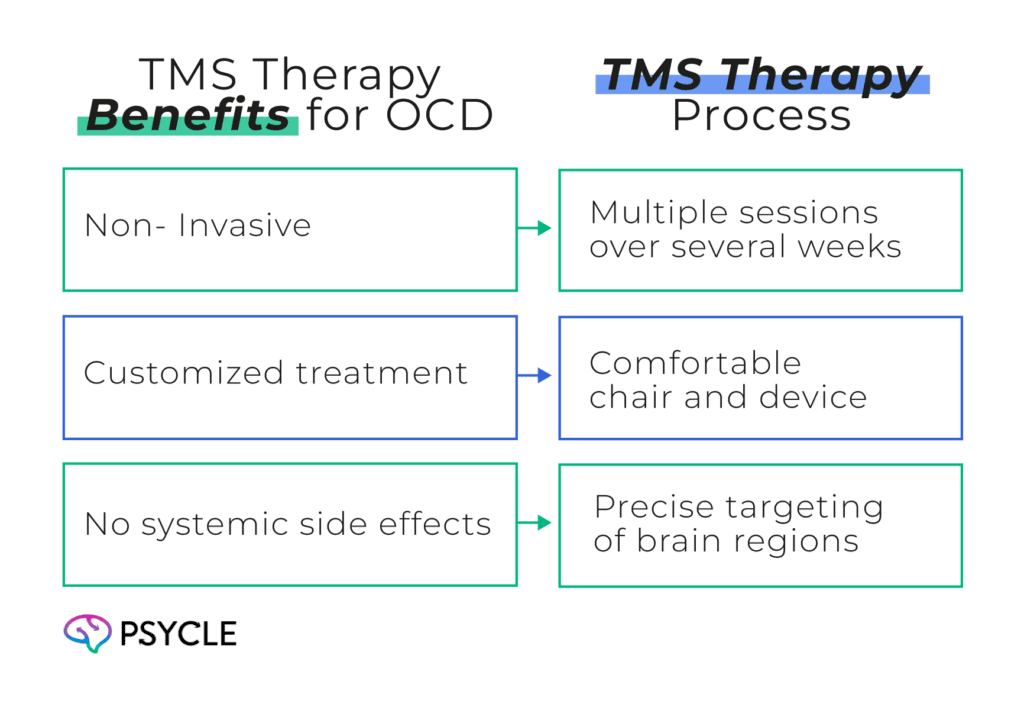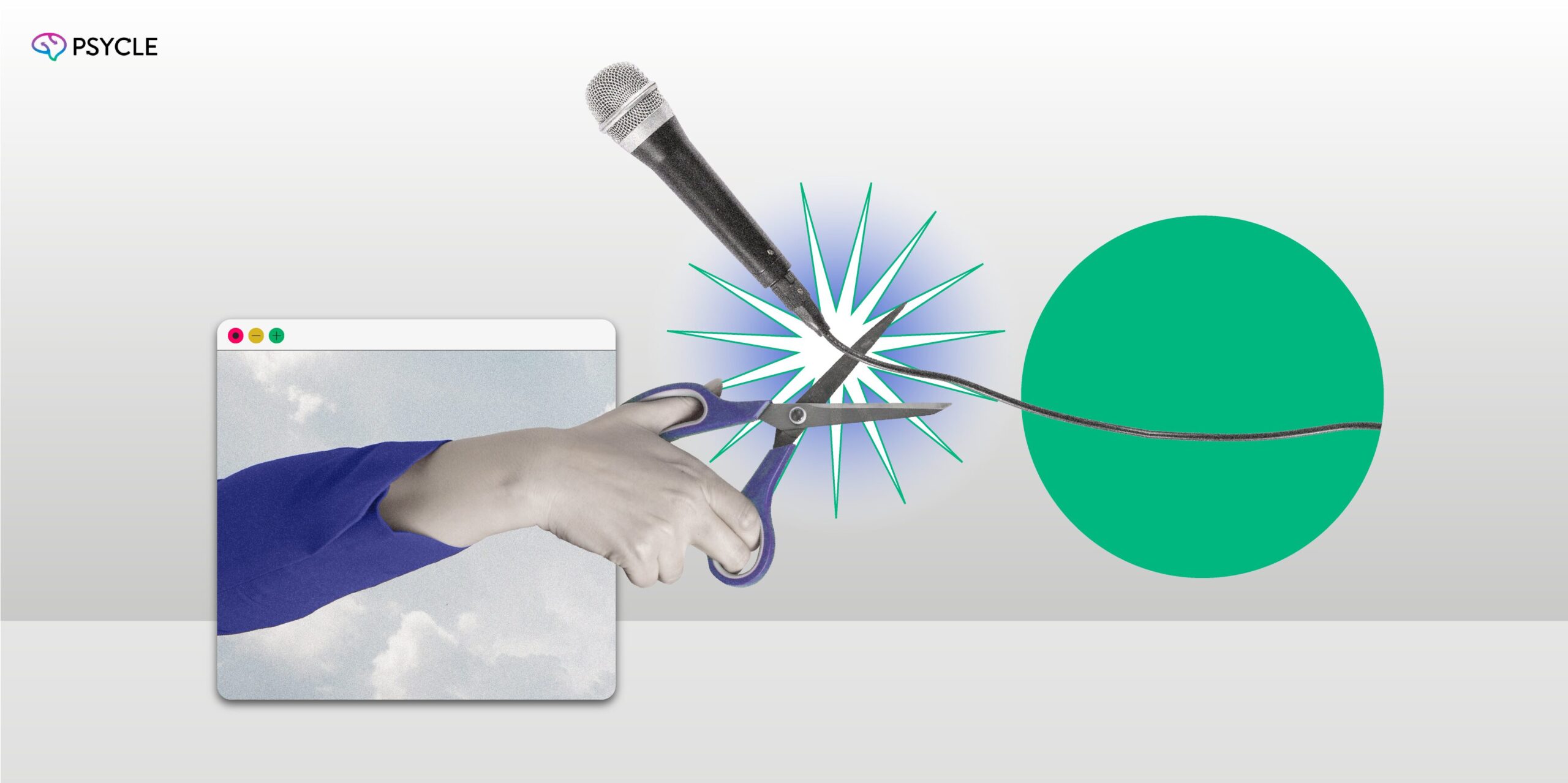Obsessive-compulsive disorder (OCD) is a challenging condition characterized by uncontrollable thoughts and repetitive behaviors. When interacting with someone with OCD, it is crucial to communicate with compassion and understanding.
This article will provide guidance on what not to say and how to effectively support individuals with OCD.
Key Takeaways
- Avoid minimizing their struggles and recognize the severity of OCD symptoms.
- Avoid offering unsolicited advice or making jokes about their condition.
- Don’t pressure them to “just relax” or dismiss their anxiety.
- Respect their boundaries and allow them to only disclose information they are comfortable sharing.
- Consider TMS therapy as a treatment option for severe OCD that doesn’t respond to other treatments.
Understanding OCD: Signs and symptoms
Obsessive-compulsive disorder (OCD) is a challenging mental health condition that affects many individuals. Understanding the signs and symptoms of OCD is crucial for recognizing and providing appropriate support for those affected. People with OCD often experience intense obsessions (uncontrollable thoughts) and compulsions (repetitive behaviors) that greatly impact their daily lives.
Signs of OCD
OCD manifests through a range of signs and symptoms, which can vary in intensity and form from person to person.
Common obsessions include:
- Fear of germs and contamination: Excessive worries about cleanliness and frequent handwashing
- Fear of losing control: Overwhelming anxiety about situations or actions leading to harm or loss
- Unwanted thoughts involving harm or taboo subjects: Intrusive and distressing thoughts of harming oneself or others, engaging in unacceptable behaviors, or committing immoral acts
Compulsions are repetitive behaviors or mental acts that individuals with OCD perform in response to their obsessions. Some common compulsions include:
- Excessive cleaning and sanitizing: Spending significant time washing hands, cleaning surfaces, or avoiding certain places or objects associated with contamination
- Checking: Repeatedly verifying things such as locked doors, switched-off appliances, or completed tasks, even when there is no reason to doubt their accuracy
- Counting: Engaging in repetitive counting rituals, either mentally or physically, to alleviate anxiety or prevent harm
It is important to remember that while some individuals may exhibit both obsessions and compulsions, others may experience primarily obsessions or compulsions. By recognizing and understanding the signs and symptoms of OCD, we can provide more effective support and compassion to individuals who are living with this challenging condition.
Common Pitfalls: Minimizing Struggles
One common mistake is to dismiss the symptoms of OCD as mere quirks. It is important to understand and acknowledge that OCD is a serious disorder that can cause immense distress for individuals who experience it.
OCD can significantly impact a person’s daily life. Minimizing their struggles by downplaying or dismissing their symptoms can invalidate their experience and hinder their progress towards recovery.
When interacting with someone with OCD, it is crucial to approach the conversation with empathy and avoid making comments that trivialize their experiences. Instead, offer a safe space for them to share their feelings and concerns openly, without judgment.
By acknowledging the seriousness of OCD, we can create a supportive environment that fosters understanding and aids in the journey towards healing and recovery.
Avoid Unsolicited Advice and Jokes
When interacting with someone who has OCD, it is crucial to be mindful of your words and actions. Offering unsolicited advice or making jokes about their condition can be extremely hurtful and unhelpful.
Instead of offering advice without being asked, it is best to provide support and understanding. Remember that unless someone who has OCD specifically asks for advice or guidance, it is important to respect their autonomy in managing their OCD.
Joking about someone’s OCD can also be damaging. It trivializes their condition, making them feel misunderstood and isolated. It is essential to remember that OCD is not a source of amusement or entertainment.
Instead of offering advice or making jokes, focus on being supportive and understanding. Listen attentively to their feelings and experiences without judgment. Show empathy by acknowledging the challenges they face and offering a helping hand when appropriate.
Remember, your words and actions can have a significant impact on individuals with OCD. Be mindful of the effects they have and strive to create a compassionate and supportive environment for those living with this condition.
Don’t Pressure to “Just Relax”
When interacting with someone who has OCD, it is crucial to acknowledge the anxiety they may experience. Avoid pressuring them to “just relax” or telling them to “stop worrying.”
These comments can be dismissive and unhelpful, as OCD is not something that can be easily controlled or turned off. Instead, offer understanding and empathy towards their anxiety. By acknowledging the anxiety they face, you validate their experiences and create a safe space for open communication.
Remember, pressuring someone with OCD to relax can worsen their symptoms and escalate their anxiety. Aim to provide support and reassurance rather than expecting them to instantly calm down.
If you notice signs of anxiety in someone with OCD, consider using empathy-driven statements to show understanding, such as:
“I understand that your anxiety is a real part of your experience.”
“I can see that this is causing you distress, and I’m here to support you.”
“It’s okay to feel anxious, and I want to help you through it.”
By fostering a compassionate and non-judgmental environment, you can enhance your communication and establish trust with individuals struggling with OCD.
Respect Boundaries: Disclosure
When interacting with someone with OCD, it is crucial to respect their boundaries regarding the disclosure of details about their condition. Pushing them to share information they are not comfortable with can be intrusive and insensitive. Instead, allow them to decide what information they want to disclose and with whom they want to share it with.
Opening up about OCD is a deeply personal process, and individuals should be given the time and space to share at their own pace. By showing support without prying, you can create a safe and trusting environment for them.
TMS Therapy for OCD
Transcranial magnetic stimulation (TMS) therapy is an approved treatment option for severe OCD that does not respond to other treatments. This innovative therapy utilizes magnetic pulses to stimulate specific areas of the brain that are associated with OCD. TMS can be used in conjunction with medication and psychotherapy to effectively manage OCD symptoms and improve the quality of life for individuals living with the disorder.
Research has shown that TMS therapy can provide significant relief for OCD patients, particularly those who have not found success with traditional treatment methods. By precisely targeting and stimulating the affected areas of the brain, TMS therapy helps to regulate neural activity and reduce the severity of OCD symptoms, including intrusive thoughts and compulsive behaviors.
The benefits of TMS therapy for OCD include:
- Non-invasive: TMS therapy is a non-invasive procedure that does not require anesthesia or surgery. It is performed in an outpatient setting, allowing patients to resume their daily activities immediately after each session.
- Customized treatment: TMS therapy can be customized to each patient’s specific needs. The treatment protocol is tailored based on the individual’s symptoms and treatment response, ensuring optimal effectiveness and safety.
- No systemic side effects: Unlike some medication-based treatments, TMS therapy does not cause systemic side effects. The targeted magnetic pulses primarily affect the brain regions associated with OCD, minimizing the risk of unwanted adverse effects on other parts of the body.
TMS therapy offers new hope for individuals with severe, treatment-resistant OCD. It’s a viable alternative for those who have not experienced satisfactory results with traditional therapies.
TMS Therapy Process
The TMS therapy process typically involves multiple sessions over several weeks. The number and frequency of sessions may vary depending on each individual’s specific needs and treatment response.
During each session, the patient sits in a comfortable chair while the TMS device is positioned near their scalp. The device delivers magnetic pulses to targeted brain regions, stimulating neural activity and promoting symptom reduction.


TMS therapy represents a significant advancement in the treatment of OCD. If you or someone you know is struggling with severe, treatment-resistant OCD, TMS therapy may be a worthwhile option to explore in consultation with a mental health professional.
Conclusion
To effectively communicate with someone with OCD, it is crucial to approach the conversation with understanding. By avoiding common pitfalls in communication, such as minimizing their struggles, offering unsolicited advice, or pressuring them to relax, you can provide the support they need. It is important to show respect for their boundaries and demonstrate empathy throughout their journey with OCD.
Overall, effective communication with someone with OCD requires empathy, support, and a commitment to understanding their unique needs. By adopting a supportive approach, you can create a safe space for open communication and facilitate their journey towards managing their OCD.
Finding Treatment
If you or someone you know is struggling with OCD, it is important to seek professional treatment. Mental health professionals can provide therapies, such as cognitive behavioral therapy (CBT), and medication to help manage symptoms. Reach out to a healthcare provider or utilize resources such as the Substance Abuse and Mental Health Services Administration (SAMHSA) Treatment Referral Helpline for assistance.
FAQs
What are the Signs and Symptoms of Obsessive Compulsive Disorder (OCD)?
Obsessive Compulsive Disorder (OCD) is characterized by uncontrollable thoughts (obsessions) and repetitive behaviors (compulsions). Common obsessions include fear of germs, fear of losing control, and unwanted thoughts involving harm or taboo subjects. Compulsions often involve excessive cleaning, checking, or counting.
How Should I Avoid Minimizing Someone’s Struggles with OCD?
It is important to recognize and respect the severity of OCD symptoms. Avoid dismissing their struggles or considering them mere quirks.
How Can I Provide Effective Support for Someone with OCD?
Avoid pressuring them to “just relax” or telling them to “stop worrying.” Instead, offer understanding and empathy towards their anxiety. Show compassion and sensitivity in your interactions with them.
What is TMS Therapy and How Can it Help with OCD?
Transcranial magnetic stimulation (TMS) therapy has been approved as a treatment option for severe OCD that does not respond to other treatments. This therapy uses magnetic pulses to stimulate specific areas of the brain associated with OCD. It can be used in combination with medication and psychotherapy to help manage symptoms.
How Can I Find Treatment for OCD?
If you or someone you know is struggling with OCD, it is important to seek professional treatment. Mental health professionals can provide therapies, such as cognitive behavioral therapy (CBT), and medication to help manage symptoms. Reach out to a healthcare provider or utilize resources such as the Substance Abuse and Mental Health Services Administration (SAMHSA) Treatment Referral Helpline for assistance.

